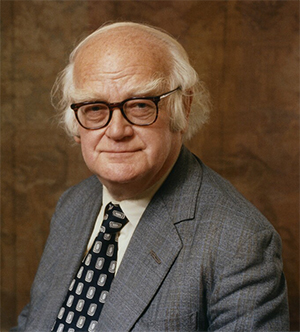John Parker (Labour politician) facts for kids
Quick facts for kids
John Parker
|
|
|---|---|

Parker in 1978
|
|
| Father of the House of Commons | |
| In office 3 May 1979 – 9 June 1983 |
|
| Preceded by | George Strauss |
| Succeeded by | James Callaghan |
| Member of Parliament for Dagenham Romford (1935–1945) |
|
| In office 14 November 1935 – 13 May 1983 |
|
| Preceded by | William Hutchison |
| Succeeded by | Bryan Gould (Dagenham) Thomas Macpherson (Romford) |
| Personal details | |
| Born |
Herbert John Harvey Parker
15 July 1906 |
| Died | 24 November 1987 (aged 81) |
| Nationality | British |
| Political party | Labour |
| Spouse |
Zena Mimardiere
(m. 1943) |
| Children | 1 |
| Alma mater | St John's College, Oxford |
Herbert John Harvey Parker (born July 15, 1906 – died November 24, 1987) was an important British politician. He was a member of the Labour Party. Parker served as a Member of Parliament (MP) for a very long time. He was in the House of Commons for over 47 years! This made him one of the longest-serving Labour MPs ever.
He first became an MP in November 1935 for a place called Romford. Later, he represented Dagenham from 1945 until he retired in June 1983. Because he was the longest-serving MP at the time, he was given the special title "Father of the House of Commons" from 1979 to 1983. When he left Parliament, he was the last MP who had started serving before the Second World War.
Contents
Early Life and Education
Parker grew up in Liverpool, a big city in England. He went to two well-known schools. First, he attended Marlborough College. Then, he studied at St John's College, which is part of the University of Oxford.
While at Oxford, he was the leader of the Oxford University Labour Club. This group was for students interested in the Labour Party. In 1943, he married Zena Mimardiere. They had one son together.
Political Career Highlights
Parker began his political journey by trying to become an MP in 1931. He ran for the seat of Holland with Boston. However, he did not win that election.
His first success came in the 1935 election. He was elected as the MP for Romford in Essex. He represented Romford until 1945. After some changes to the voting areas, he became the MP for Dagenham in the 1945 election. Dagenham was a new area created from parts of the Romford constituency.
Serving in Government
From 1945 to 1946, Parker had a brief role as a junior minister. He worked in the Dominions Office. This office dealt with relations between Britain and its self-governing territories. During this time, James Callaghan, who later became Prime Minister, worked as his assistant.
Parker lost his government job because he had strong opinions about South Africa. After this, he became a "backbencher." This means he was an MP but not a minister. He served on several important committees in Parliament.
Making New Laws
Parker worked on creating new laws. In 1952, he tried to change an old law about Sunday activities, but his idea was not approved. However, another law he proposed became the Legitimacy Act 1959. This law helped children whose parents married after their birth or whose parents' marriage was not legally valid.
He also helped pass the British Nationality (No 2) Act 1964. This law was important because it helped reduce the number of people who did not have a nationality. It followed an international agreement from the United Nations.
Later Years in Parliament
Parker continued to be the MP for Dagenham until he retired in 1983. He was the last MP still serving who had been elected before World War II. From 1979 to 1983, he held the honorary title of Father of the House of Commons. This title is given to the longest-serving MP. After he retired, his former assistant, James Callaghan, took on this special title.
Fabian Society and Writings
Throughout his political life, Parker was closely involved with the Fabian Society. This is a British socialist organization that promotes gradual social change. He held many important roles within the society:
- He was the General Secretary of the New Fabian Research Bureau starting in 1933.
- He was the General Secretary of the Fabian Society from 1939 to 1945.
- He later became its Vice-Chairman and then Chairman.
- In 1980, he became the President of the Fabian Society.
Parker also wrote several books. These include 42 Days in the Soviet Union (1946) and Labour Marches On (1947). He also wrote his own life story, called Father of the House (1982). His old papers and documents from his time in public office are kept at the London School of Economics.
 | Victor J. Glover |
 | Yvonne Cagle |
 | Jeanette Epps |
 | Bernard A. Harris Jr. |

